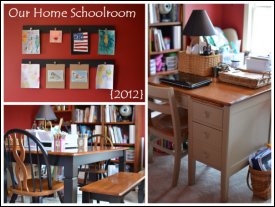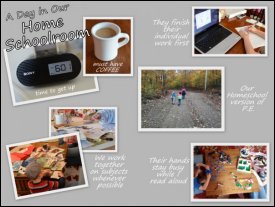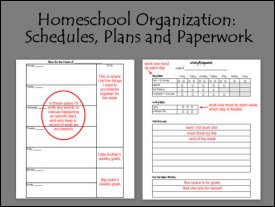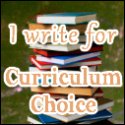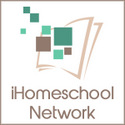I’m an Eclectic Homeschooler. What Exactly Does That Mean?
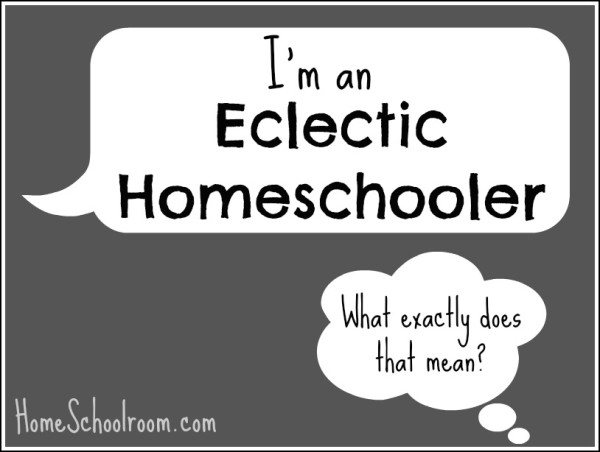
I like neat and tidy things, so sometimes I wish I could label my homeschooling philosophy with one of the catchy phrases that everyone would understand: classical, Charlotte Mason, interest-led, unit study, project-based learning, interest-led, unschooling…
Settling very comfortably into our third year I can’t help but call my style ECLECTIC. Since eclectic means “not following any one system but selecting and using the best elements of all systems,” that term doesn’t really help you understand how I go about educating my children. Yet I can’t avoid summing it up that way since I do, in fact, borrow bits that fit from different philosophies, and change techniques in different seasons and for different subjects.
If you’d like the long-winded description of my version of eclectic homeschooling, then read on for the parts of well-known philosophies that I use in our home schoolroom:
Charlotte Mason
This was the first philosophy that really caught my attention when I was researching homeschooling. I love the use of living books (quality literature written by an author with great interest in the subject) and incorporate her wonderful “extras” like poetry, classical music, fine art, nature study, and handicrafts. I also agree with her focus on habits, being sure the children have free time, and the idea of education as a lifestyle. I love the description I read recently in an article on Sage Parnassus, saying that Miss Mason viewed education as occurring “between a child’s soul and God.” Lovely.
If I had to choose one philosophy this would probably be it, but I am not enough of a purist to feel I can call myself a full “Charlotte Mason” homeschooler because of the areas where I borrow from other philosophies. Oh, and I’m known to frequently re-read a section of a book to my kids (she focused on the habit of attention and only one reading of a text) because someone can’t remember the important points. And sometimes that someone is me. My favorite book so far on this philosophy is A Charlotte Mason Companion by Karen Andreola.
Ruth Beechick
Over this past summer after feeling burnt-out all spring I read The Three R’s and You Can Teach Your Child Successfully by Ruth Beechick. You can read my full review on Curriculum Choice for the details on what I loved about her philosophy. The bottom line: her style is practical, and favors real books and real life over workbooks. Her advice gave me the confidence to avoid packaged curriculum for some subjects.
Whole-Hearted Learning
Educating the Whole-Hearted Child by Clay and Sally Clarkson was another book that provided much-needed inspiration last summer, and they call their philosophy “whole-hearted learning.” Again, their style bears the common theme of whole books versus workbooks. The best pieces I took from this book were the focus on family relationships, the heart of our children in their education, and our overall home environment.
Classical Education
There’s a touch of classical education in my homeschool soup as we study Latin and learn history chronologically, planning to cycle through historical periods more than once. I’ll admit I haven’t read a lot of the classical education literature, probably because I dislike the heavy concentration on memorization in the younger years. Though I like memorizing things that feed the soul, like hymns, Bible verses and poetry, memorizing large amounts of other information sounds like drudgery to me.
Traditional School at Home
We use a full math curriculum with chapters and quizzes (oh, how I love Teaching Textbooks) and I administer standardized tests to my children. My children study the full range of subjects, even if they don’t like a particular topic. We have a fairly structured school day and they are expected to complete all work I assign. We even have desks and a school room! However, I don’t hold strictly to grade levels (though my kids know what number to give people who ask), we shy away from worksheets and fill-in-the blank activities, and I don’t give any other tests or grades to my children.
Unit Studies
When we started homeschooling this was one of my primary techniques. We all loved it and have many fond memories of units we’ve done, but I use it far less now. Within history or science we’ll often spend a period of time on a certain topic, like the human body or Egypt, but I don’t tie in a lot of other subjects so we continue with our other learning each day. Why do I use them less now? My post about planning too much details some of the difficulties. The bottom line: in general I have to be careful not to orchestrate a show for my kids and to let their brains make connections with information. Now I reserve unit studies for when we’re taking a break from regular schoolwork during holidays or vacation weeks.
Interest-Led or Delight-Directed
I have more ideas than I can possibly cover in our school days, but I also work to allow time for my children to follow their interests. Homeschooling provides my children time in the afternoons and Fridays (I plan a four-day school week) to pursue their interests, so in essence part of their education is interest-led. We structure our home, time, and activities to encourage learning all the time. A big piece of this is making sure I provide resources: specialty supplies, books and videos, extracurricular activities and field trips.
Project-Based Learning
I’m intrigued with the idea of project-based learning (PBL), especially as my children are becoming older and more capable of diving into a topic and completing a project truly on their own. I’ve incorporated some PBL for my middle school daughter this year, allowing her to pursue a topic of interest with the expectation that at the end she shows us what she knows through some sort of project. I see this as a great way to work on passion for learning and independence. As such I see it’s true usefulness being in areas where the child has a natural interest, not as a way to cover all subject I deem necessary.
So there is my eclectic philosophy explained in a bit more depth. For some more long-winded explanations about how this style looks in our home, you can check out our 2013-2014 homeschool plans and how we structure our day to fit in all that matters to us.
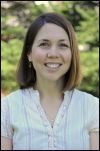 Hi, I'm Heidi and I homeschool my two sweet kids. I want them to know that learning is an exciting lifelong adventure! We love great books, unit studies, notebooking, lapbooking, and hands-on learning.
Hi, I'm Heidi and I homeschool my two sweet kids. I want them to know that learning is an exciting lifelong adventure! We love great books, unit studies, notebooking, lapbooking, and hands-on learning.